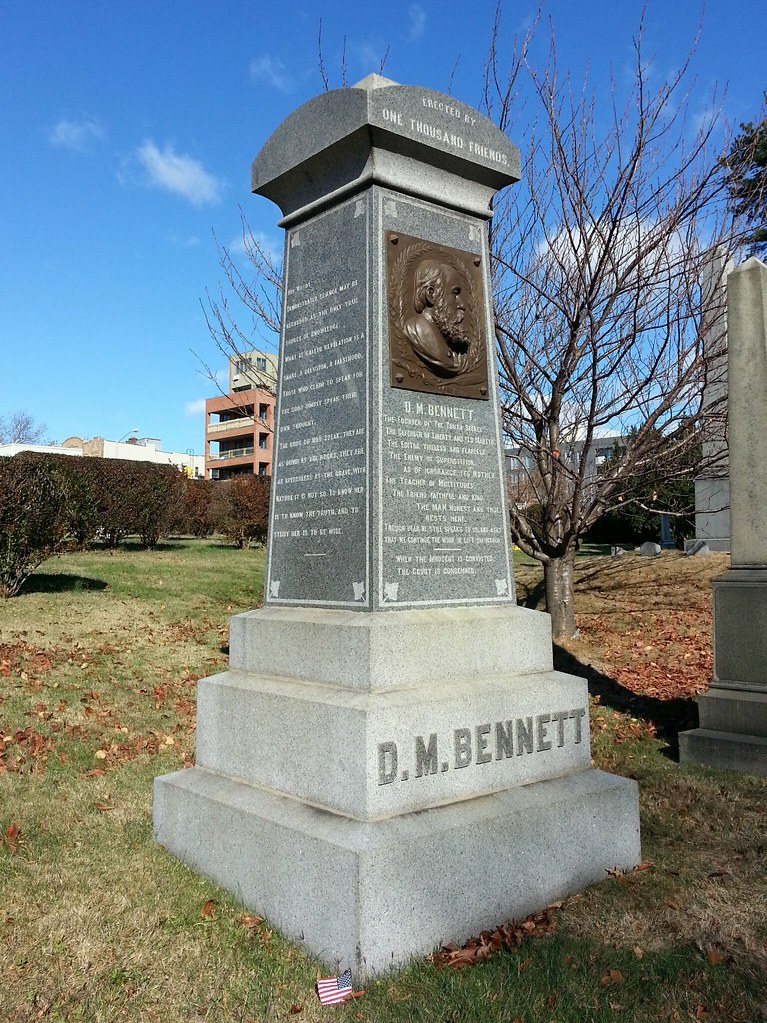
DeRobigne Mortimer Bennett, a freethinker and founder of The Truth Seeker, was sentenced to 13 months in prison in 1879 at the age of 60 for violating the Comstock laws by distributing a supposedly obscene essay entitled Cupid's Yokes, a 23-page, densely worded, heavily footnoted argument against the institution of marriage. Anthony Comstock, the crusading postal inspector and head of the New York Society for the Suppression of Vice, personally collected the evidence for Bennett's conviction, ordering the essay from him by mail along with some other publications.
You can read Cupid's Yokes here. If it seems shocking that such an essay was labeled obscene and that distributing it could have landed you in prison in the United States just 135 years ago, keep in mind that our modern ideas of free speech still needed another 80 years to really take root; it was only a 1959 lawsuit over the Post Office's confiscation of uncensored copies of Lady Chatterley's Lover that, "in effect, marked the end of the Post Office's authority — which, until then, it held absolutely — to declare a work of literature 'obscene' or to impound copies of those works or prosecute their publishers . . . [and] established the principle that allowed free speech its total victory."
I found an NY Times article from 1883 reporting that Bennett's friends wanted to install the monument you see above here at Green-Wood, adorned with quotations from some of his writings. The Times's (or at least the author's) disdain for Bennett's countercultural views is glaringly obvious: the article describes him as a semi-literate buffoon "addicted to obscenity" whose defining thought on religion, amidst the "blasphemous and indecent rubbish that he wrote in his life-time", was "There ain't no God". Bennett's own words, however, paint a much different picture. Engraved in the monument above (though not visible in this photo), for example, are the following lines:
I believe in the eternal powers and principles of nature, in the superiority of good lives, in acts of kindness toward our fellow-beings, and in efforts to spread the light of truth over the dark spots of the earth. Each person must be responsible for the good or ill he does. Here is our duty, here is our allegiance, and not in the sky above us. We must make our heaven on the earth, and not in the air.



The quote you shared at the end struck me profoundly today. I can’t wait to research Mr. Bennett in more depth.